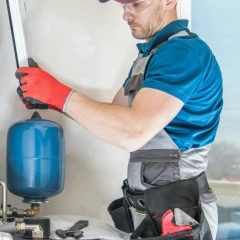













If you own a pressure washing business, your truck is more than just transportation — it’s the backbone of your operation. It hauls your equipment, gets you to job sites, and sometimes even serves as your mobile office.
But when it comes to insurance, is a standard personal auto policy enough? In most cases, no — you’ll likely need commercial auto insurance.
Coverage details and requirements vary by insurer and state. Always confirm exact terms with your provider before relying on coverage.
A personal auto policy is designed for everyday driving — not for vehicles used primarily for business. If you use your truck for work (hauling equipment, transporting employees, advertising your services), your insurer could deny a claim if the policy does not include commercial use.
Commercial auto coverage is often recommended or required when:
Coverage depends on your insurer, but a standard commercial auto policy may include:
Coverage names and definitions can differ between insurance companies. Always verify exactly what is included in your policy.
Industry surveys show that commercial auto insurance for small service businesses often falls between $1,200 and $2,500 per year per vehicle, but actual rates can be higher or lower based on your insurer’s underwriting, business profile, and coverage selections.
Pressure washing trucks often carry water tanks, chemicals, and expensive equipment. If your truck is damaged or involved in an accident, a personal policy might not cover the loss — and you could be left paying for repairs, medical bills, and lost business income out of pocket.
In addition, many commercial contracts require proof of commercial auto insurance before allowing you to start work.
If your pressure washing truck is essential to your business, commercial auto insurance is worth strong consideration. In many cases, commercial auto insurance is required by contracts or local regulations, and it’s often the safer choice for protecting your business.
Request a no-obligation quote to see your available options and ensure you’re meeting client and legal requirements.
